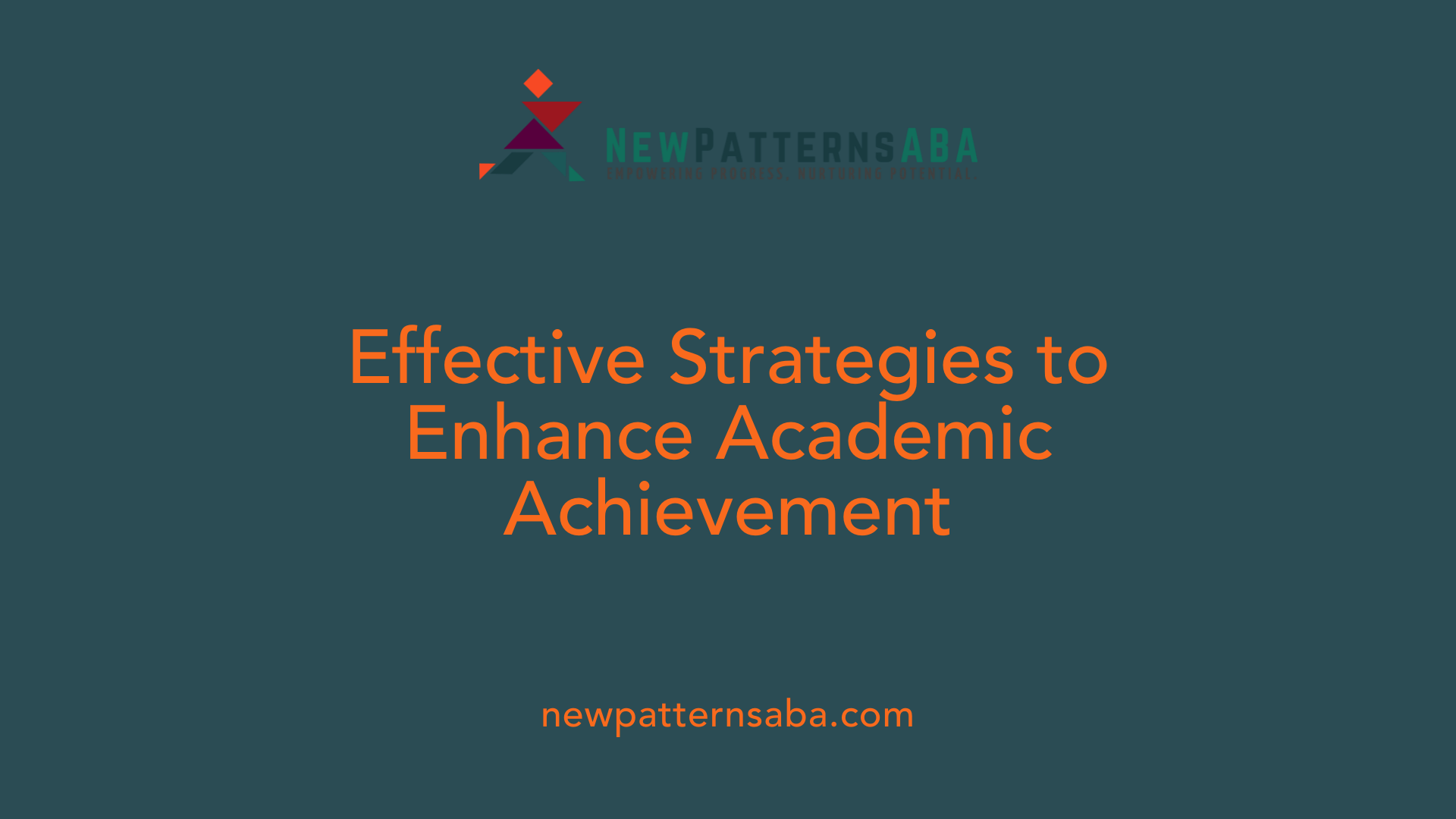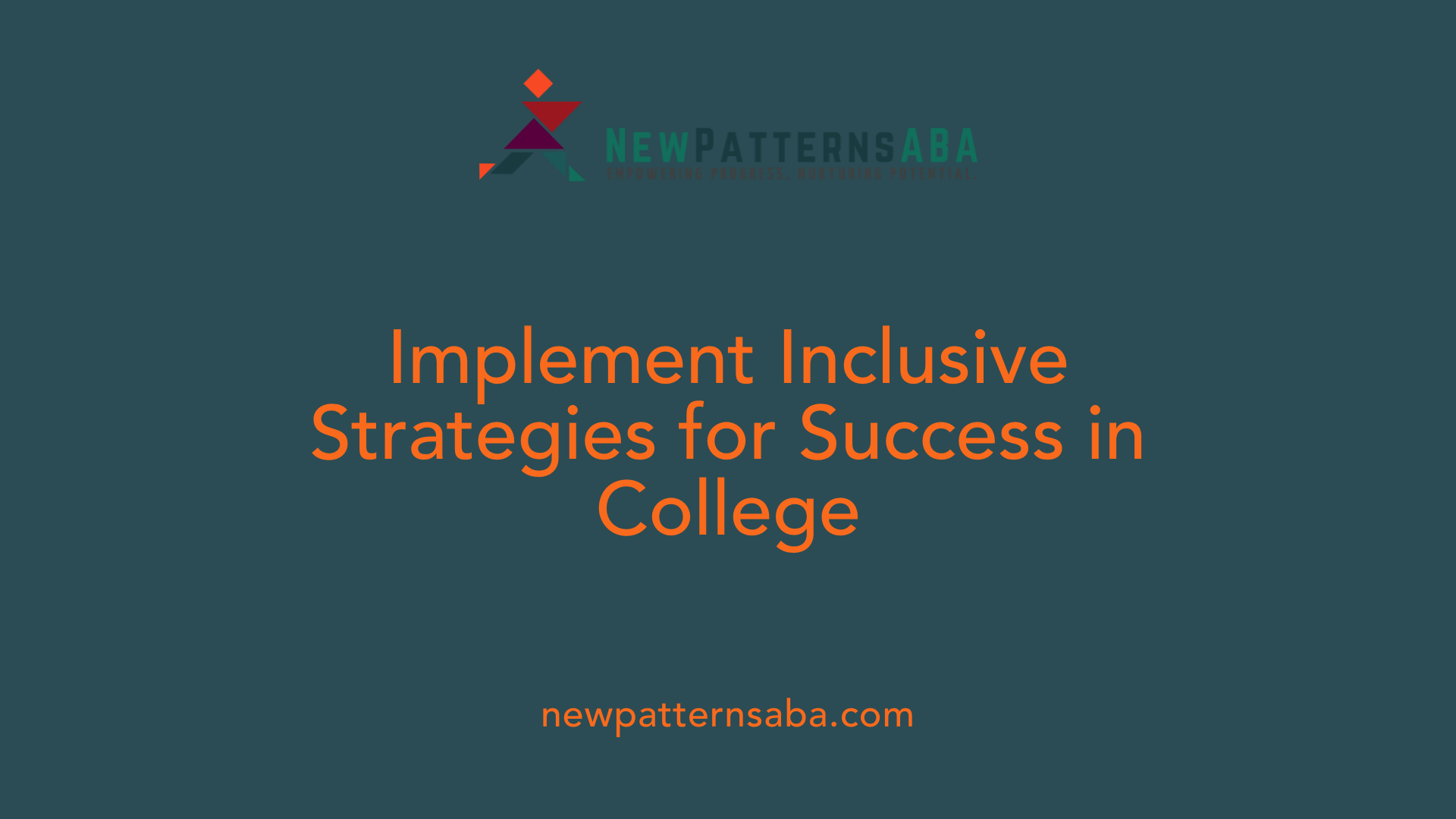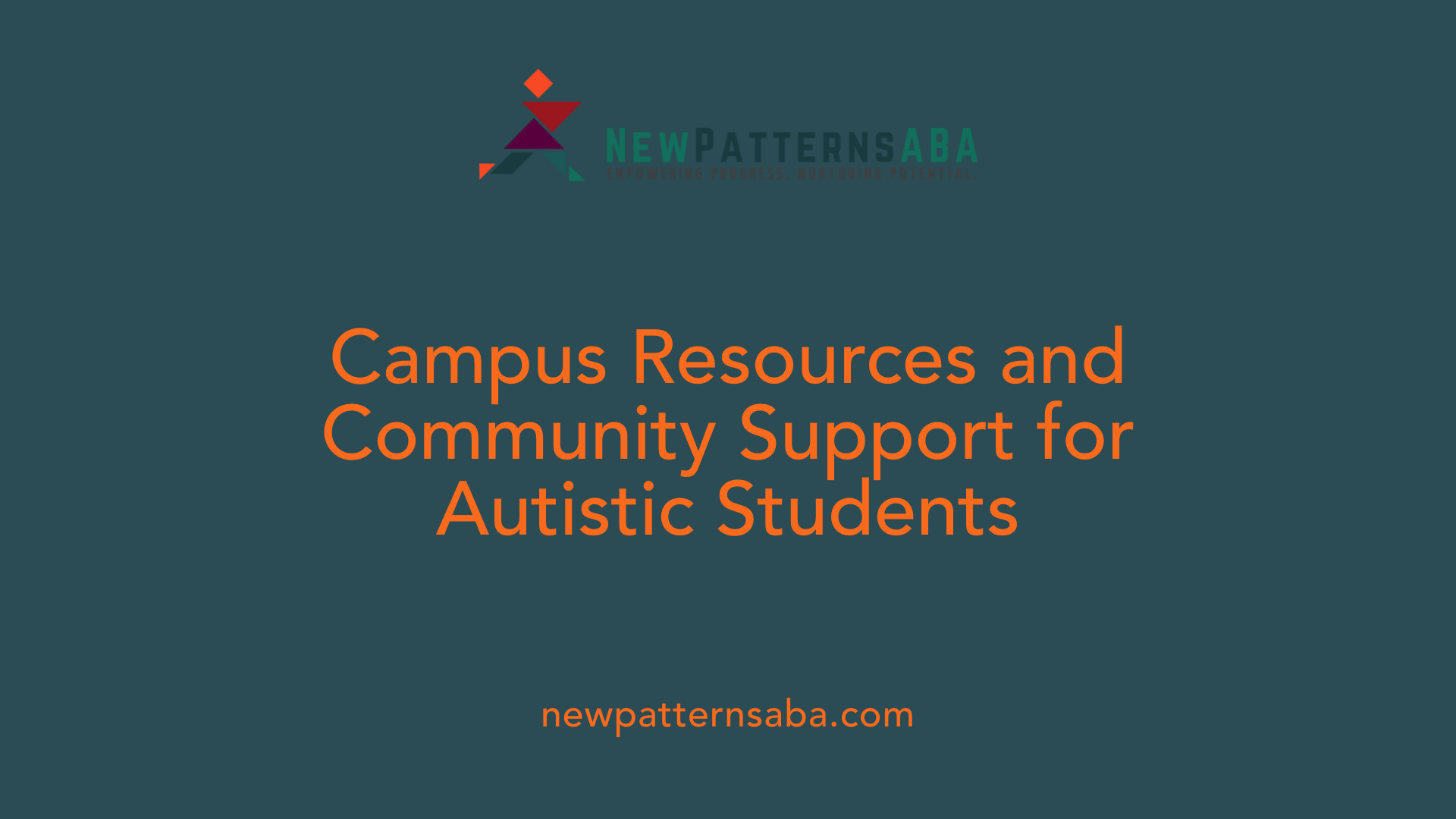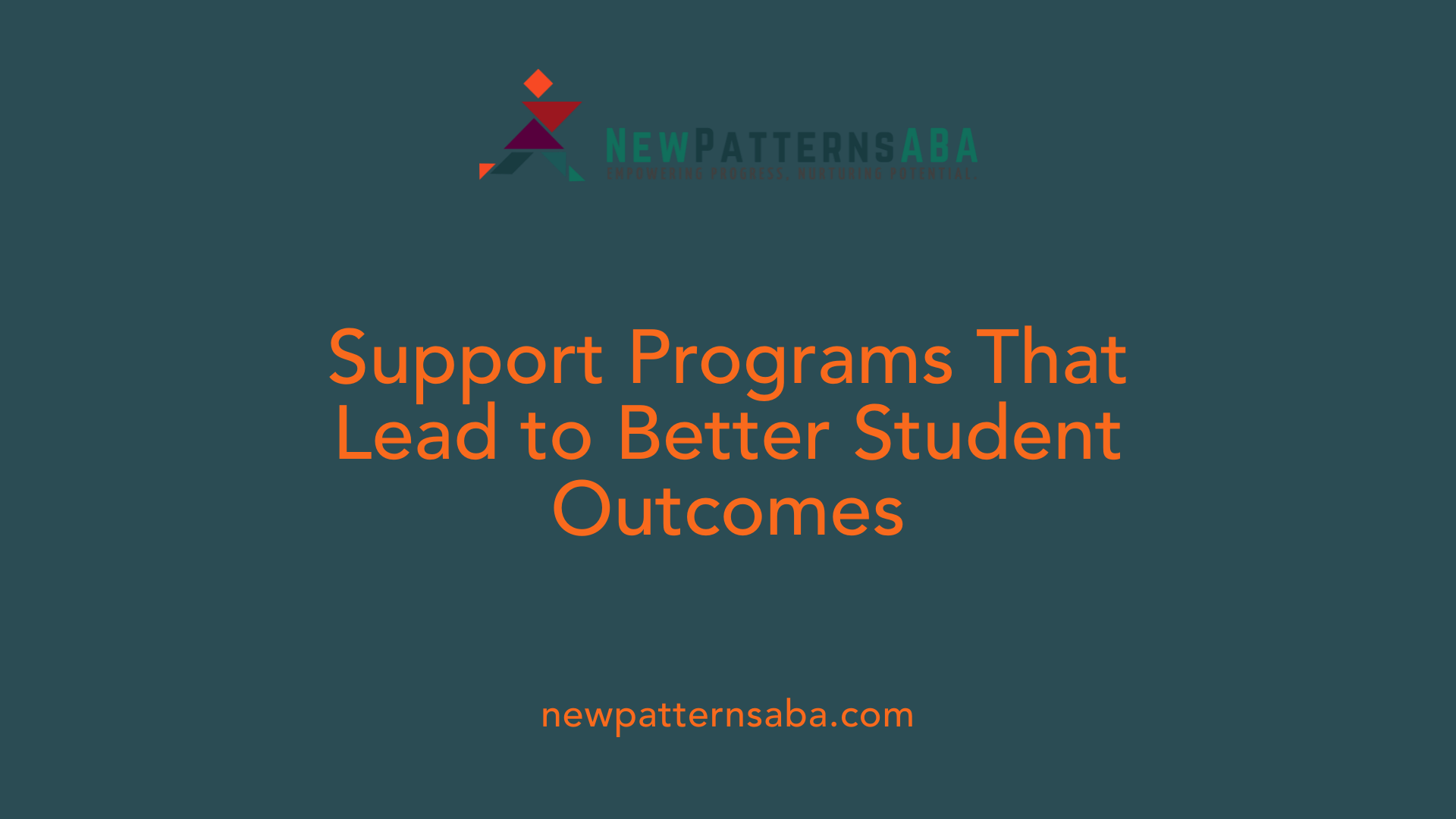Understanding the Landscape of Support for Autistic Learners in Higher Education
As the number of autistic students attending college continues to grow, it is vital for institutions to recognize the unique needs of these learners and implement comprehensive support strategies. With at least a third of the 50,000 teens on the spectrum graduating high school annually and pursuing higher education, ensuring their academic and social success has become an essential part of creating inclusive college environments. This article explores the various options, resources, and best practices for supporting autistic students throughout their college journey.
Available Support Options for Autistic College Students

What support options are available for autistic students in college?
Autistic students in higher education have access to a range of resources and support systems designed to meet their unique needs. Many colleges and universities provide specialized programs that include academic coaching, social skills training, peer mentoring, and transition support services. These are often managed through dedicated disability services offices, which help students access accommodations and tailor support plans.
Academic coaching is common, especially in institutions with comprehensive autism support programs. These coaches assist students with planning, organization, and time management—crucial skills for navigating college life. Some colleges charge an additional fee for these services, but many also offer free or grant-funded programs.
Peer mentoring programs connect students with peers who have similar experiences or expertise in autism support, fostering social integration and academic success. Transition support services focus on preparing students for the move from high school to college, emphasizing self-advocacy, organizational skills, and understanding available resources.
In addition to these supports, many institutions provide accommodations required by the Americans with Disabilities Act (ADA). These include extended time for exams, note-taking assistance, access to quiet sensory-friendly environments, and assistive technology to support learning and organization.
Organizations like the College Autism Network serve as valuable resources for both students and faculty. They offer training, professional development, and events aimed at improving access and success for students on the autism spectrum.
Early disclosure of autism diagnosis and personalized support planning are crucial components. When students communicate their needs and work with campus supports, they increase their chances of thriving academically and socially in college.
Resources for Transitioning to College for Autistic Students
Several specialized organizations and programs provide crucial support for autistic students preparing to enter college. The College Autism Network (CAN) is a prominent resource that offers advocacy, professional development, and specific programs designed to facilitate successful higher education experiences. These include Autism Support Programs (ASPS), Autism Career Empowerment (ACE), and CIRCA, which target both academic achievement and employment readiness.
In addition, the Autism Society publishes practical guides like 'Building College Success,' which delivers strategies to help students navigate academics, social interactions, and emotional challenges. Such guides emphasize the importance of self-advocacy skills and how to effectively utilize available services.
Evidence-based resources are also available through the Interagency Autism Coordinating Committee (IACC) website, as well as tools from the National Autism Center and the National Professional Development Center. These resources provide guidance on best practices for transition, independent living, and academic success.
Families and students can explore options and supports through platforms like ThinkCollege.net, which helps plan postsecondary education pathways, and the Autism Speaks Transition Toolkit, offering step-by-step advice on preparing for college-life transitions.
Access to these programs and resources can make a significant difference in enabling autistic students to build independence, develop self-advocacy skills, and succeed in college environments. Being informed about available supports ensures a smoother transition from high school to higher education, improving overall college retention and graduation rates.
The Importance of Disclosing Autism for Accessing College Support Services
Why is disclosure of autism important for access to accommodations in college?
Disclosing autism in college plays a vital role in enabling students to receive necessary support services. When students inform the college’s disability services office of their diagnosis, they can request accommodations such as extended test time, quiet testing environments, note-taking assistance, or alternative test formats. These adjustments are often crucial for many autistic students to perform at their best academically.
Furthermore, disclosure helps students communicate their specific needs and challenges—like issues with processing verbal exchanges or sensory sensitivities—making it easier for faculty and staff to understand and support them appropriately.
Sharing diagnosis details also promotes self-advocacy. It encourages students to take charge of their education by understanding available resources and asserting their rights to an equitable learning environment. Knowing that their needs are officially recognized can reduce the stress of masking or hiding traits related to autism.
From a formal perspective, disclosure ensures that academic accommodations are documented and reliably provided, preventing potential disparities. This process helps establish a fair and accessible educational setting.
However, students must consider some risks, including possible stigma or negative perceptions from peers and faculty. Deciding whether to disclose is a personal choice that involves weighing the benefits of support and understanding against concerns about privacy or unwanted attention.
In summary, disclosing autism can unlock vital support that promotes academic success and well-being, but it requires thoughtful decision-making by each student based on their comfort and circumstances.
Tailored Support Services and Programs for Autistic Students
Many colleges across the United States offer specialized programs and support services aimed at helping students on the autism spectrum succeed in higher education. These autism-specific college programs are designed to address diverse needs, from academic challenges to social integration and independent living skills.
One prominent example is the College Autism Network, which provides extensive resources, research, and a comprehensive database of programs tailored for autistic college students. Institutions like Vanderbilt University, the University of Alabama, and Nova Southeastern University have developed dedicated programs that include academic mentoring, tutoring, social skills workshops, and career planning assistance. Some of these programs may require additional fees or offer scholarships to make participation accessible.
These initiatives often extend the basic legal accommodations mandated by the Americans with Disabilities Act (ADA), such as extended test-taking time, note-taking support, and quiet testing environments. Beyond these, many schools create inclusive environments with targeted services like social skills coaching, peer mentoring, and life skills training.
Support services also frequently encompass mental health counseling and peer support groups, helping students build social connections and manage anxiety or sensory sensitivities.
For instance, programs like the University of Alabama’s Autism Spectrum Disorders College Transition and Support Program and the Drexel University’s Autism Support Program offer tailored strategies to foster independence and academic growth. These initiatives are typically designed around the student's unique profile, recognizing the wide spectrum of abilities and needs among autistic individuals.
Overall, the goal of these specialized programs is to empower students with autism to navigate college life successfully, promoting retention, graduation, and post-college employment. With a variety of options available nationwide, autistic students and their families can find supportive environments that nurture both academic achievement and personal development.
| Program Name | Location | Support Offerings | Additional Notes |
|---|---|---|---|
| College Autism Network | National | Resources, research, training | Centralized info hub |
| Vanderbilt University | Tennessee | Academic coaching, social skills | Fee-based support |
| University of Alabama | Alabama | Transition program, mentoring | Includes life skills |
| Nova Southeastern University | Florida | Social skills, career support | Scholarships available |
Supporting Academic Success: Strategies and Practices

What strategies can help autistic students succeed academically in college?
Autistic students face unique challenges in higher education, but targeted strategies can significantly improve their chances of academic success. Creating a supportive environment begins with offering individualized accommodations. These might include extended time on exams, designated quiet testing areas, or alternative communication options, ensuring students can demonstrate their knowledge effectively.
Early transition planning is crucial. Starting as early as age 14 to 16, students and families should develop a comprehensive plan that includes self-advocacy skills, organization, and independence. This preparation helps students navigate college supports confidently and access necessary services without delay.
Implementing tailored supports, such as social skills groups, peer mentoring, and sensory adjustments, can address specific difficulties related to social interactions and sensory sensitivities. Colleges offering specialized programs often incorporate academic coaching, social activities, and transition services to foster integration and independence.
In addition, organizational tools—like planners, visual schedules, and digital reminders—help manage coursework and reduce stress. Stress management techniques such as mindfulness, sensory tools, and agreed signals for communication can also support emotional well-being.
Combining proactive planning, personalized accommodations, and encouraging self-advocacy not only enhances academic achievement but also promotes a sense of confidence and independence. These integrated supports create a more accessible and inclusive college environment for students on the autism spectrum.
Creating Inclusive College Environments through Best Practices

What are best practices for educators and support staff working with autistic college students?
Supporting autistic students effectively in higher education requires implementing inclusive strategies across different aspects of campus life. Starting the planning process early, around ages 14 to 16, allows for a smooth transition from high school to college. During this stage, students can develop essential self-advocacy skills, ensuring they understand their needs and how to access supports and accommodations.
Providing organizational tools such as visual schedules, planners, and checklists helps students manage their coursework and daily routines more efficiently. These tools support executive functioning, which can be a challenge for some on the spectrum.
Creating sensory-friendly environments is also crucial. This includes offering designated quiet spaces, allowing the use of sensory tools or items, and minimizing overwhelming visual or auditory stimuli. Accommodations like extended test time, note-taking assistance, or using written communication can make learning more accessible.
Building a supportive community involves fostering open communication among students, faculty, and support staff. Encouraging peer mentoring, social skills development, and understanding the unique strengths of autistic students contributes to a welcoming atmosphere.
Overall, these practices—early transition planning, organizational support, sensory accommodations, and community building—are integral to creating an educational environment where autistic students can thrive academically, socially, and emotionally.
The Role of Campus Resources and Community Support Networks

Disability and Mental Health Services
Colleges are equipped with disability offices that facilitate access to various accommodations essential for autistic students. These services often include providing lecture notes, extra response time, and written communication options to support learning differences. Mental health counseling tailored for neurodiverse students can also help manage stress and anxiety that often accompany college life.
Peer Support and Mentoring
Peer mentoring programs are valuable for autistic students, offering social guidance and academic coaching. Many institutions implement peer support initiatives that connect students with mentors who understand autism and can provide social cues, emotional support, and academic assistance.
Off-campus Autism Resources
Beyond campus, there are numerous resources such as local autism societies, Autism Speaks U chapters, and social skills groups. These organizations offer additional social opportunities, training, and mentorship, helping students build community and develop independence.
Building a Campus Inclusive Culture
Creating an inclusive environment involves faculty training on neurodiversity, promoting awareness, and implementing universal design in courses. Supporting students' sensory needs by providing sensory-friendly spaces and fostering understanding within the campus community can significantly improve college experiences for autistic learners.
Support Program Examples
| Program Name | Location | Services Offered | Target Audience |
|---|---|---|---|
| UA-ACTS | University of Alabama | Academic coaching, social skills, transition support | Autistic students |
| Bridges to Adelphi | Adelphi University | Mentoring, social activities, academic help | Autistic students |
| Mason Autism Support Initiative | George Mason University | Social skills, independent living, academic support | Autistic students |
Colleges across the U.S. offer diverse resources and programs aimed at fostering both academic success and social well-being for students on the autism spectrum. Familiarity with these resources enables students to advocate for themselves and fully engage in college life.
The Impact of Support Programs on Student Outcomes

Academic Achievement
Support programs tailored for autistic college students can significantly enhance academic success. These programs often include academic coaching, structured study skills workshops, and personalized accommodations such as access to lecture notes or extended test times. Research indicates that students receiving these supports are more likely to experience improved grades and academic confidence.
Social Integration
Building social skills and fostering connections are essential for a positive college experience. Many programs emphasize social skills development through peer mentoring, social groups, and group therapy. Interventions like social planning workshops and organized activities around students’ interests have demonstrated increased participation in campus life, leading to stronger peer relationships.
Mental Health and Well-being
Autistic students often face challenges related to anxiety, sensory sensitivities, and communication difficulties. Support services, including counseling with trained professionals and sensory-friendly environments, help manage stress and promote mental health. Programs that recognize and address these needs contribute to a more comfortable and supportive college environment.
Retention and Graduation Rates
High-quality support initiatives correlate with increased retention and graduation rates among autistic students. By providing comprehensive academic, social, and emotional supports, colleges help students overcome barriers, stay engaged, and reach their degree goals. Evidence from various programs across the U.S. shows that tailored support can markedly improve college persistence for students on the autism spectrum.
| Outcome | Support Methods | Impact |
|---|---|---|
| Academic achievement | Academic coaching, study skills, accommodations | Improved grades, confidence, and skills |
| Social integration | Peer mentoring, social activities, groups | Increased participation, friendships |
| Mental health | Counseling, sensory accommodations | Reduced stress, better coping |
| Graduation efficiency | Academic, social, emotional supports integrated | Higher graduation rates |
Summing It All Up: Creating a Supportive Pathway for Success
How can colleges plan and implement effective support systems for autistic students?
Colleges play a vital role in fostering an environment where autistic students can thrive academically, socially, and emotionally. Effective planning begins with providing personalized accommodations that cater to individual needs. These might include access to lecture notes, extended response times, sensory-friendly spaces, and assistive technologies.
Early transition planning from high school, ideally starting between ages 14 and 16, helps students develop self-advocacy skills and an understanding of available resources. Disclosing autism and providing documentation is crucial for accessing support services such as academic coaching, social skills workshops, and mental health counseling.
Building programs that promote social integration—like peer mentoring, social planning activities, and community involvement—can significantly enhance community engagement and lessen feelings of isolation. Additionally, campus mental health services need to be well-trained in autism-specific issues to effectively support students dealing with anxiety, depression, or stress.
Collaborative efforts between students, families, faculty, and disability services ensure that support plans are tailored and accessible. Ongoing outreach and fostering a welcoming, inclusive campus climate help sustain student success throughout their college journey.
Why are early intervention and disclosure important?
Starting intervention early equips students with essential skills for independence and self-advocacy. Disclosure of autism enables access to necessary accommodations and support services, which are often a prerequisite for tailored support programs. Transparent communication benefits students by ensuring they receive the appropriate resources from the outset.
How do inclusive campus environments support autistic students?
An inclusive environment respects neurodiversity and encourages acceptance among peers and staff. Incorporating universal design principles in classrooms, providing sensory-friendly areas, and promoting awareness campaigns foster understanding. Such steps make the campus accessible and welcoming, helping autistic students participate fully in academic and social aspects.
What is the role of collaboration among all stakeholders?
Effective support involves concerted efforts from students, families, educators, and campus support services. Regular coordination ensures that support strategies are responsive and adaptable. It also encourages ongoing feedback, leading to continual improvement of programs and services.
| Support Area | Examples | Additional Details |
|---|---|---|
| Academic Support | note-taking services, flexible deadlines | Tailored to help with learning differences |
| Social Integration | peer mentoring, social skills workshops | Focused on building community |
| Sensory Accommodations | seating preferences, sensory rooms | Reduces overwhelm and increases comfort |
| Mental Health | counseling, workshops | Addresses stress, anxiety, depression |
| Transition Planning | early intervention, self-advocacy training | Prepares students for independence |
| Programs & Support | university initiatives, off-campus groups | Range from free services to grant-funded programs |
Access to well-established programs across various states, consistent faculty training, and supportive policies enable colleges to create a robust network of support designed specifically for the diverse needs of autistic students, setting them on a pathway toward academic and personal success.
Moving Toward Inclusive Higher Education for All Learners
Supporting autistic students in college requires a multifaceted approach that combines personalized accommodations, comprehensive programs, and an inclusive campus environment. Early planning, transparent disclosure, and collaborative efforts among students, faculty, staff, and community resources can significantly enhance their academic, social, and emotional experiences. As colleges continue to develop and refine their support systems, fostering a culture of acceptance and understanding remains crucial. The collective commitment to accessible education will not only improve graduation rates and student satisfaction but also pave the way for a more diverse and equitable higher education landscape.
References
- College Support Options for Autistic Students
- Academic Supports for College Students with an Autism ...
- College Programs
- In The Classroom / Teaching Resources / Higher Ed Support
- Going to College With Autism
- Increasing Social Integration for College Students with ...
- College Programs for Students with Autism
- Life on campus
- Post-High-School Planning Resources for Autistic Students
- College Autism Network





